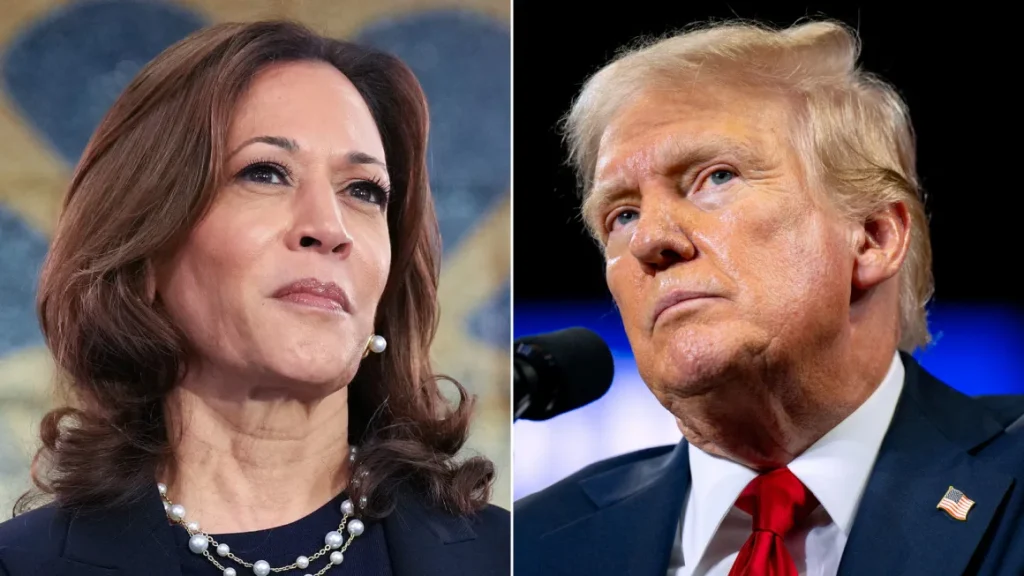“We want to hear that they care. We want to hear that both candidates understand and acknowledge there are seven Americans still in captivity, and that the US is fully committed to bringing them back,” Ronen Neutra, a US-Israeli dual citizen from New York, told CNN. His 22-year-old son, Omer, is a serving Israeli soldier and was abducted by Hamas during the October 7 attacks.
CNN spoke with relatives of three US citizens held in Gaza who all expressed frustration that attempts to free their family members over the past 11 months had so far failed.
“Enough is enough,” said Adi Alexander, whose 20-year-old son Edan was serving in the Israeli military when he was abducted by Hamas on October 7.
“Perhaps the deal proposed by President (Joe) Biden back in December was good then, but maybe we need something different now,” he added.
All the family members who spoke to CNN said they were looking to the Biden administration as well as Trump and Harris to find creative ways to increase pressure on Hamas and Israel to reach a new deal.
“I would challenge the candidates and ask them, you know, how to get our kids back,” said Ruby Chen, another US-Israeli citizen whose 19-year-old son, Itay, was killed during the attacks last year. His body is still being held by Hamas in Gaza.
“We want to hear new ideas from both candidates and for them to commit to adopting a fresh approach to all the players,” Chen told CNN.
The family members told CNN that approach should include the US seeking new pressure points on Hamas and its sponsor Iran, as well as on other nations with potential influence, like Egypt, Turkey and Qatar, the Gulf state which hosts Hamas officials and has helped facilitate negotiations.
Incentives, such as trade deals, sanctions relief and international prisoner swaps should also be evaluated, the hostage families told CNN, similar to recent deals agreed between Washington and Moscow to free US citizens such as Wall Street Journal reporter Evan Gershkovich and US basketball star Brittney Griner
“They showed great creativity in a complex deal they did for Evan Gershkovich and working an international deal with Germany and other countries to bring American citizens back home,” Alexander told CNN.
“Our children may be not as famous as a basketball player, but you know, from our perspective, the creativity they have shown has to come back again here in our case, and to do everything possible, everything within their means – whether it’s putting more pressure, whether it’s finding creative ways to bring our kids back home.”
There is even support among the relatives of the US hostages for Washington to apply greater pressure on Israel, whose veteran prime minister, Benjamin Netanyahu, is accused by critics of thwarting US-led hostage negotiations to appease hardliners in his fragile coalition.
The relatives said they would now support moves to curb US diplomatic, financial and military aid to Israel as a way of pushing Netanyahu toward a deal.
“Without a doubt, more pressure on Bibi Netanyahu should be placed, but I’m not sure there is political will at this point, either from the Biden administration or the Trump campaign, to put more light between them and the Israeli prime minister,” Ronen Neutra told CNN, using a popular nickname for Netanyahu.
“But we are urging our leaders to take brave action and to put politics aside. We are not playing here. This is a real life-and-death situation,” he added.
Over 100 hostages remain in Gaza today, as living conditions in the Palestinian enclave crumble under Israeli forces’ months-long siege. Freed hostages have described suffering from frequent shortages of food and water in Gaza, and some have also reported physical and mental abuse by their captors.
The recovery earlier this month of six murdered hostages’ bodies prompted mass protests in Israel, with demonstrators demanding Netanyahu’s government strike a deal to free those who remained in captivity. Many wondered if the nationwide outrage might be enough to force his hand.
Instead, a defiant Netanyahu has doubled down on his strategy in the strip, stressing his commitment to fighting until Hamas is defeated and repeating his refusal to withdraw soldiers from the border between Gaza and Egypt – a significant new sticking point in talks to reach a deal.

